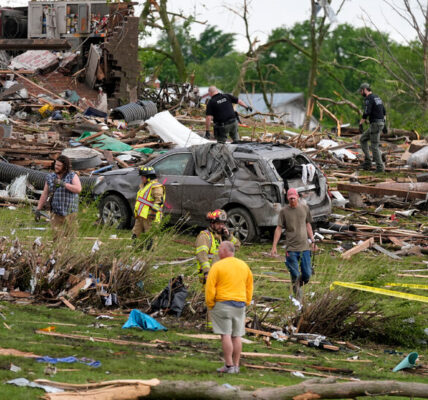A panel of top congressional leaders has recommended that Nikki Haley receive Secret Service protection after considering the seriousness of the threats against her and her strength in national polling, according to a person familiar with the matter.
The Haley campaign asked for a Secret Service detail after she received an increase in threats upon emerging as the final challenger to former President Donald J. Trump for the Republican nomination for president.
The Secret Service protects major candidates for president, but it is up to the homeland security secretary to determine who qualifies as a “major candidate.” Under federal law, he does so in consultation with a congressional advisory committee that includes the top four leaders in Congress — the speaker and House minority leader, majority and minority leaders in the Senate and one other member.
The person confirmed the panel’s recommendation, reported earlier by CNN, on the condition of anonymity because they were not authorized to disclose it publicly.
With the panel’s decision on Ms. Haley, it is now up to Alejandro N. Mayorkas to determine whether she should get a taxpayer-funded security detail.
According to criteria laid out by the advisory committee, Mr. Mayorkas can consider several factors in determining who should receive protection, including an assessment of the seriousness of the threats they have received; whether they have polled at 15 percent or higher for at least 30 days in national surveys; and whether they are the former or de facto nominee of a major party for president or vice president.
Other candidates, most recently Robert F. Kennedy Jr., have said they were denied Secret Service protection.
Ms. Haley has been the target of at least two hoax calls that have sent the authorities rushing to her home. Mr. Trump’s supporters have been known to attack his political opponents with racist messages, death threats and “swatting” calls, or fake reports of emergencies at their homes.




